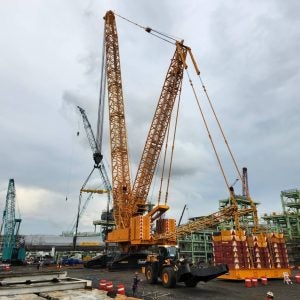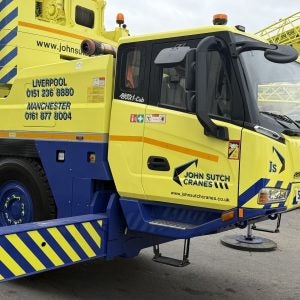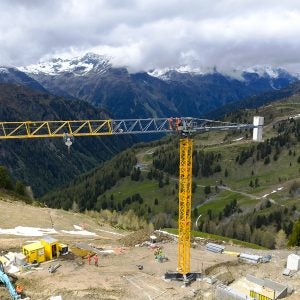THE REPORT on discussions in ESTA for simplified crane specifications (What we really want see links below) made interesting reading. Any practical engineer endorses the sentiment of ‘keeping it simple’ – something that Americans tend to do so well.
But market-driven manufacturers are obliged to produce ‘innovative solutions’, to solve problems, and to gain competitive advantage, and generally to progress. German manufacturers, for instance, rightly pride themselves on their tradition of engineering excellence, and strive for technical superiority. Salutary lessons can be drawn from history and anecdotal experience. One example, in a similar context, which often comes to mind is the HyMac hydraulic excavator of the 1960s and ’70s.
HyMac was a successful pioneer of the then emerging hydraulic excavator, with a basically good machine, targeted principally at the cost- (and rate)-conscious UK plant hire market.
HyMac spurned the advances in more sophisticated, and more costly, high pressure hydraulic systems in the interests of keeping it cheap, and simple. That policy satisfied its loyal UK customers, and for a time, the company was able to outsell the more expensive German imports. But HyMac was progressively and inevitably overtaken by superior products.
The Japanese too went for technology, and tackled the price issue by gearing up (and investing) for volume production, and focusing on quality and reliability.
Where is HyMac today, and who produces the best excavators (not to mention the most desired cars)?
Nobody can or would argue for not considering customer demand, but it can be counter-productive, and potentially destructive for a manufacturer to leave it to competitors to take the lead. Advances in technology have produced significant advantages for crane users, in both performance and reliability. In a competitive market-place, the manufacturer has to keep up, or perish.
The ESTA initiative is a good and well-intentioned one, if it encourages a two-way exchange of ideas – listening as well as talking. While there is no room for indulging engineers’ frivolous fancies, the industry cannot stand still.






